The NBA, starting as a professional league in 1946, has seen its share of turmoil.
Notable scandals include referee Tim Donaghy’s betting controversy and the infamous Pacers-Pistons brawl. This piece highlights 10 significant NBA scandals, focusing on their impact on players, teams, and the league.
Incidents involving figures like Kobe Bryant, and Mark Cuban, and teams like the Boston Celtics and Los Angeles Lakers illustrate the widespread effects. We’ll now explore these pivotal controversies that have marked NBA history.
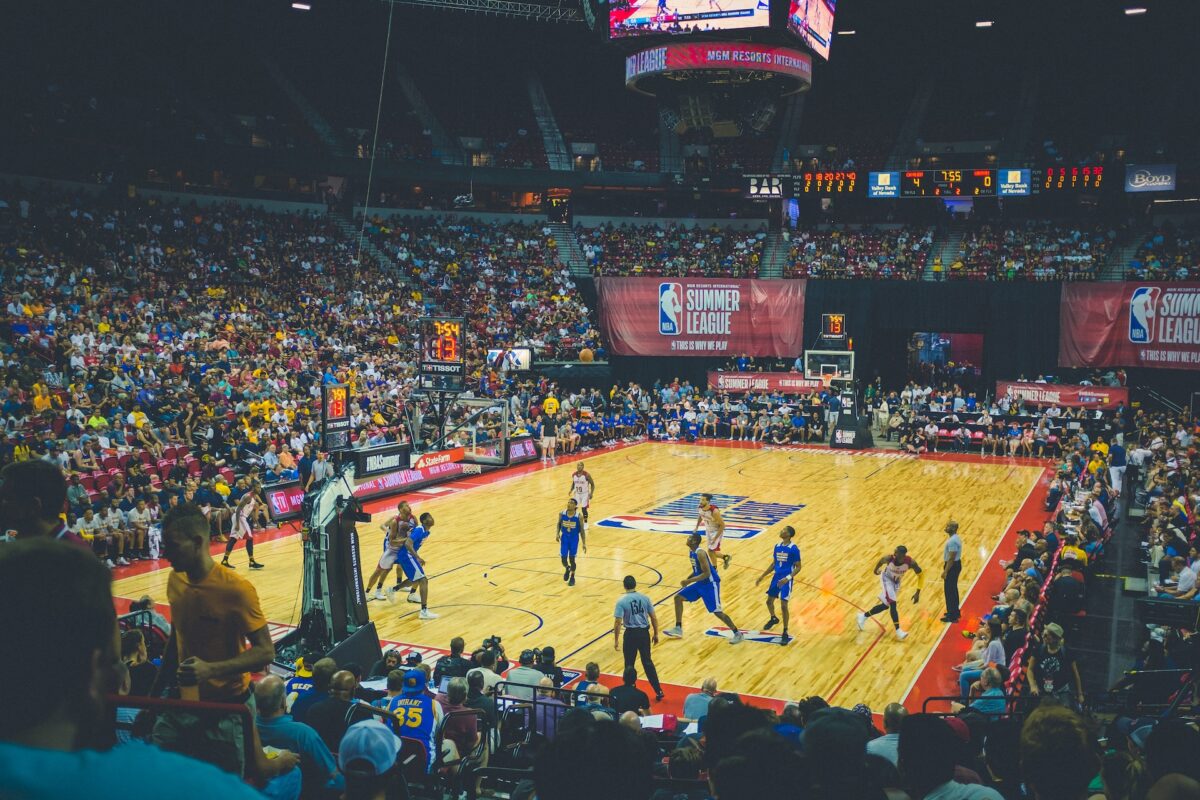
The Malice at the Palace – Biggest Fight Between NBA Teams in History
The Malice at the Palace, a notorious brawl during a 2004 NBA game between the Indiana Pacers and the Detroit Pistons, remains one of the biggest NBA scandals that occurred during one of the many NBA games.
The chaos erupted when Pistons fans targeted Pacers’ Ron Artest, leading to a massive fight involving players and fans. This melee resulted in the ejection of nine, including Pacers’ Stephen Jackson.
The NBA, under Commissioner David Stern, enforced strict security measures in response. Teams installed metal detectors and conducted bag checks, aiming to prevent similar incidents. The league also limited alcohol sales at games.
The players involved, particularly Artest, faced severe fines and suspensions, with Artest receiving an 86-game suspension and a $5 million fine.

This event was a critical moment, leading to enhanced security and stricter regulations in professional basketball games. It underscored the importance of fan safety in sports. Since then, the NBA has maintained strict security at games, ensuring a safe environment for enjoying basketball.
Tim Hardaway Sr. Homophobic Outburst
On February 14, 2007, former NBA All-Star Tim Hardaway Sr. sparked controversy with a homophobic statement on a Miami radio station.
Addressing former teammate John Amaechi‘s coming out, Hardaway declared, “I hate gay people and I don’t like to be around gay people. I am homophobic. I don’t like it. It shouldn’t be in the world or the United States.” Despite his later apology, the backlash was immediate and intense.
NBA Commissioner David Stern condemned Hardaway’s remarks, marking a pivotal moment for the league. This incident prompted the NBA to actively combat homophobia, promoting inclusivity among players, coaches, and fans.
Hardaway’s involvement with The Trevor Project as an LGBT advocate followed, highlighting a significant shift in addressing such issues within the NBA and sports community.
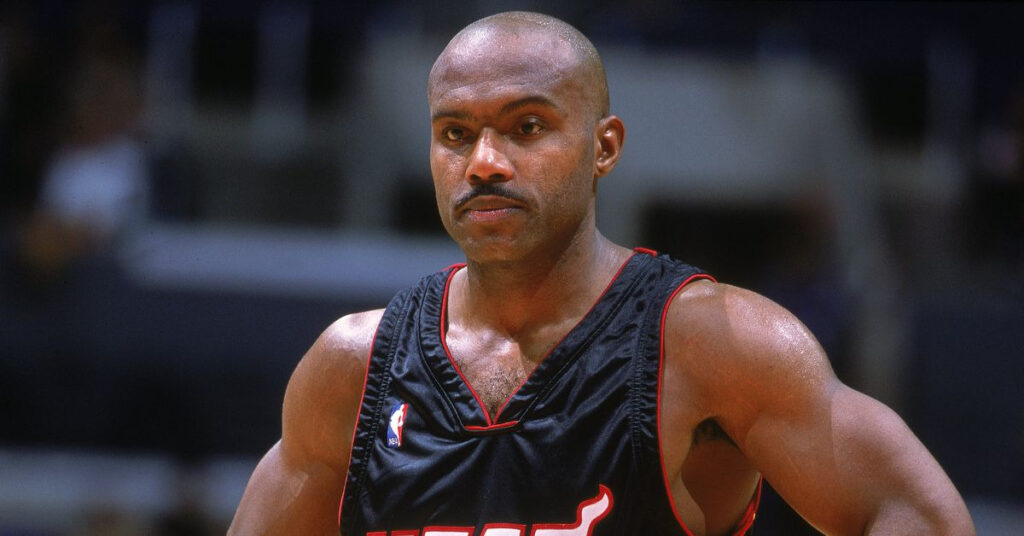
Dallas Mavericks Owner Mark Cuban Involved In Sexual Harassment Case
In 2018, a Sports Illustrated report exposed a culture of misogyny and predatory behavior within the Dallas Mavericks organization, implicating former CEO Terdema Ussery.
Over 200 employees faced allegations of discrimination and harassment, tarnishing the team’s reputation. Mavericks owner Mark Cuban, despite being aware of these issues, initially failed to act.

Following the scandal, Cuban donated $10 million to women’s groups and initiated a review of the Mavericks’ workplace culture.
The NBA, led by Commissioner David Stern, conducted an independent investigation, concluding that the Mavericks had inadequately addressed sexual harassment claims. Consequently, Cuban faced a $2.5 million fine, the largest for an NBA team owner, and the Mavericks were mandated to appoint an independent investigator for their policies.
The 2018 Dallas Mavericks case was a significant scandal in NBA history, underscoring the league’s need to combat discrimination and harassment. This incident demonstrated that even prominent figures like Cuban are accountable, prompting the NBA to enhance measures for protecting players and staff.

Jayson Williams’ Violent Gunplay Scandal
On February 14, 2002, former NBA player Jayson Williams faced charges including aggravated manslaughter after the accidental shooting of his limo driver, Costas “Gus” Christofi, at his residence.
The trial, spanning over two years, resulted in a guilty verdict for aggravated assault and attempts to conceal the incident.
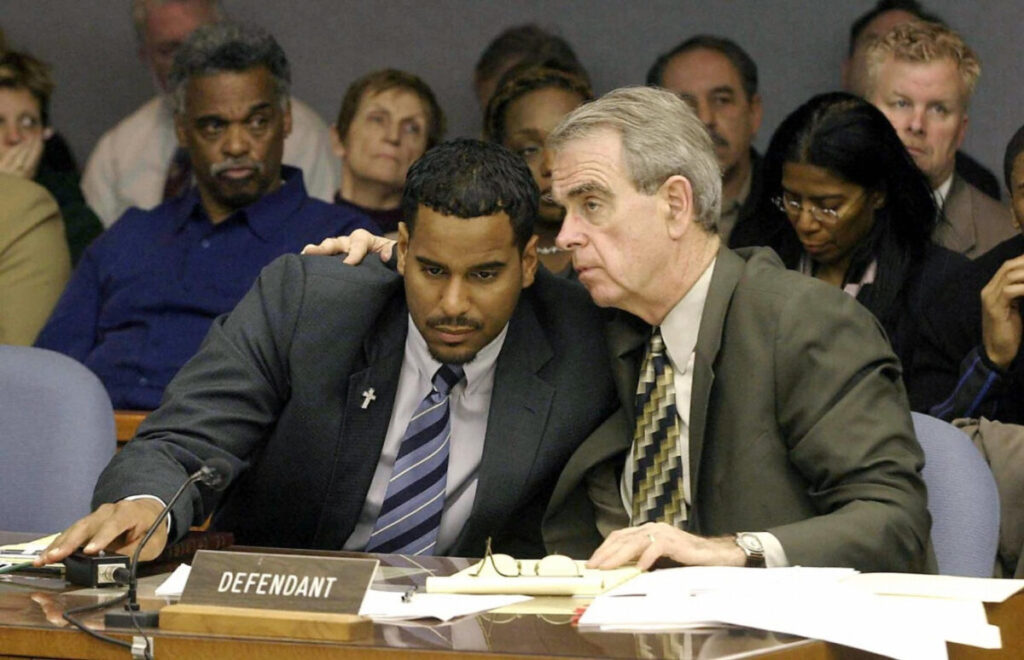
The tragedy occurred at a gathering in Williams’ mansion, where a game of cards turned fatal. Williams, handling a loaded shotgun, inadvertently fired it, leading to Christofi’s death. He then tried to fabricate a story to mislead investigators.
Williams’ sentencing to 18 months of a five-year term marked the start of his legal woes, compounded by a $21.5 million lawsuit for alleged sexual assault.
This incident underscores the critical need for responsible gun handling. It highlighted the necessity for NBA players and professional athletes, including stars like Ben Wallace and JaVale McGee, to maintain caution and intervene in escalating situations. The tragedy served as a stark reminder to the NBA community about the consequences of reckless behavior.
This situation wasn’t about basketball anymore, it was something bigger.

Kermit Washington Punches Rudy Tomjanovich
On December 9, 1977, during a game between the Houston Rockets and Los Angeles Lakers, Kermit Washington‘s punch severely injured Rudy Tomjanovich.
This incident, resulting in a 60-day suspension and a $10,000 fine for Washington, was a defining moment in history.
Tomjanovich suffered a disfigured face and long-term damage, impacting his NBA career. Despite this, he later led the Lakers to 2 NBA Championships.
This event prompted the NBA to enforce stricter rules against on-court violence, emphasizing sportsmanship.
The incident not only affected Washington’s and Tomjanovich’s careers but also set a precedent in the NBA for handling altercations, underscoring the importance of respect in the league. It remains a significant, cautionary tale in NBA history.
Staying on the topic of masks, Rudy Tomjanovich wore these beauties when he came back from a long layoff after getting decked by Kermit Washington. pic.twitter.com/XALjplxdjq
— Funhouse (@BackAftaThis) March 3, 2019
Latrell Sprewell Chokes Coach PJ Carlesimo
In December 1997, Latrell Sprewell’s attack on coach PJ Carlesimo during Golden State Warriors practice stunned the NBA.
Sprewell choked and threatened Carlesimo, leading to a 68-game suspension, one of the NBA’s strictest penalties.
This incident led to Sprewell’s ban from all NBA activities, including teams, coaches, referees, and All-Star events. It prompted the NBA to enforce stricter rules on personal and technical fouls, aiming to reduce violence in games.
Echoing the severity of Ron Artest’s 2004 incident during the Eastern Conference Finals, Sprewell’s actions highlighted the NBA’s disciplinary power. Despite the career setback, he later achieved success with the New York Knicks and San Antonio Spurs, showcasing his resilience in professional basketball.

The Overdose Death of Len Bias
On June 19, 1986, Len Bias, a University of Maryland star, was drafted by the Boston Celtics. Tragically, just two days later, he died from a cocaine-induced cardiac arrhythmia. Bias’ death was a shock to the nation and marked a turning point for the NBA.
In response, the NBA instituted a drug awareness program for young players.
The United States Congress also passed the “Len Bias Law,” imposing tougher penalties for drug offenses, a law that remains active.

Bias’ death brought national attention to the dangers of drug use, especially in the Black community. It underscored the importance of education and prevention programs in combating addiction and preventing similar tragedies.
Over three decades since Bias’ passing, the NBA has heightened its focus on drug abuse prevention. His death not only led to significant legal changes but also raised awareness about drug issues, particularly affecting young, Black athletes.
Kobe Bryant Sexual Assault Case
In 2003, Kobe Bryant, a star with the Los Angeles Lakers, faced a felony sexual assault charge after accusations from a 19-year-old hotel employee in Eagle, Colorado.
The NBA, under Commissioner David Stern, did not take action despite the case’s severity. It was dismissed following the accuser’s refusal to testify, leading to an out-of-court settlement.
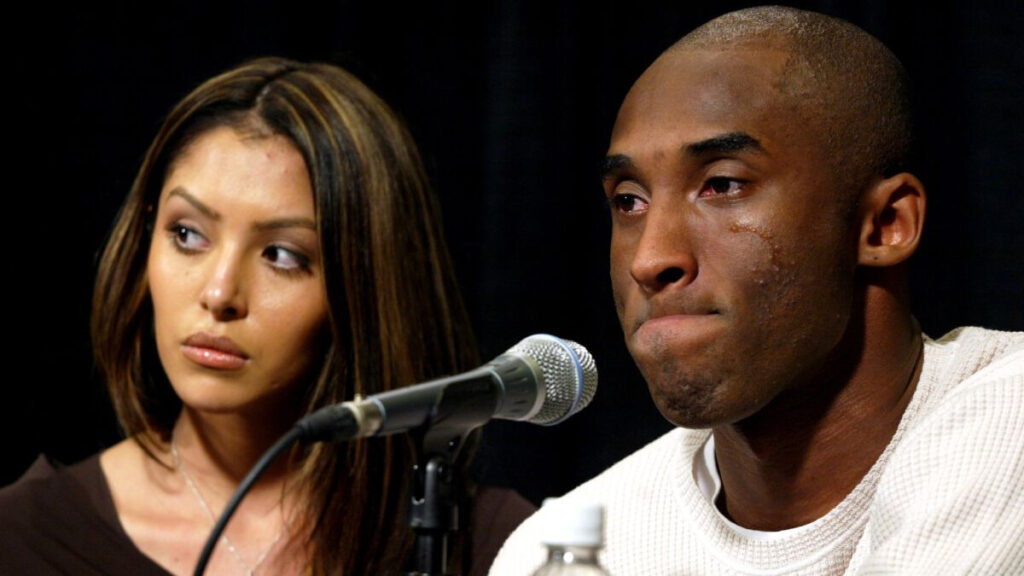
This scandal significantly impacted Bryant’s public image. Sponsors like Adidas and McDonald’s withdrew their support, as TMZ Sports released. The case sparked debates about sexual assault and male athlete privileges, contributing to discussions on gender power dynamics.
These debates were part of a larger narrative that influenced the NBA’s later decision to ban Clippers owner Donald Sterling for life in 2014. Bryant’s formal apology to the woman and her family was a key moment, though some continued to challenge his legacy. The Kobe Bryant case highlighted important issues within the NBA and society, reflecting on the responsibilities of professional athletes.
The Lifetime Ban of Clippers Owner Donald Sterling
In April 2014, the NBA made a groundbreaking decision to ban Clippers owner Donald Sterling for life.
This action came in response to Sterling’s racist and offensive remarks, which were publicly exposed in a recording. Stern’s swift and severe response reflected the NBA’s commitment to combating such behavior.
The ban received strong support from NBA players, many of whom are minorities, and Mavericks owner Mark Cuban. They agreed that Sterling’s comments were intolerable and that the NBA must stand against such conduct to protect its community.
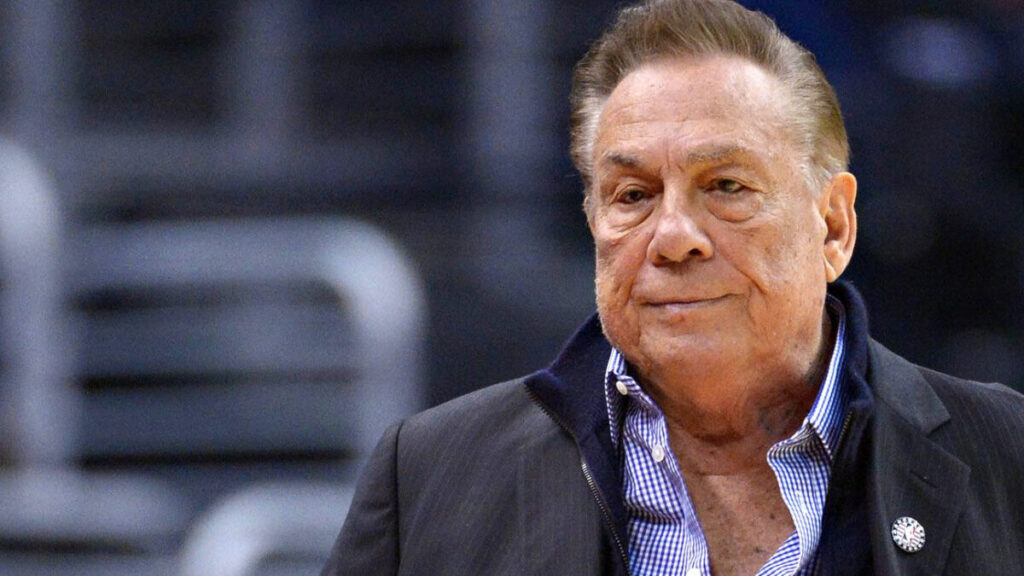
Accompanying the ban was a $2.5 million fine, the maximum under NBA bylaws. Sterling was also required to sell the Clippers and end his private ownership. Stern emphasized the necessity of this decision to protect the diverse community of players, coaches, and fans in the NBA.
This lifetime ban of Donald Sterling marked a pivotal moment in history. It underscored the league’s dedication to its values and readiness to penalize those who breach them. It sent a clear message that racism and discrimination are unacceptable in the NBA, affirming the league’s commitment to safeguarding its members.
Final Words
The NBA’s history is dotted with significant scandals and controversies, each shaping the league in profound ways. Events like Tim Hardaway Jr.’s homophobic comments, the Dallas Mavericks’ sexual harassment case, referee Tim Donaghy’s case, and Latrell Sprewell’s attack on his coach have been pivotal. The Kobe Bryant sexual assault case and referee Tim Donaghy’s betting scandal are also notable, offering invaluable lessons for the NBA and its stakeholders.
The lifetime ban of Donald Sterling highlighted racism issues in basketball, while the Malice at the Palace brought fan safety into sharp focus. These incidents, including those in certain NBA games, have driven the league to adopt more progressive policies. As a result, the NBA has evolved into a more open and diverse community, learning and growing from each challenge it faces.
Frequently Asked Questions
What was the worst NBA scandal?
The worst NBA scandal was the Kobe Bryant rape/sex scandal of 2003. Despite the case being dismissed after the accuser refused to testify, it caused a shift in people’s perception of him and triggered an investigation into refereeing activities. This investigation revealed an NBA betting scandal the following year.
Has the NBA ever been sued?
Yes, the NBA has been sued before. In 1970, American basketball player Oscar Robertson filed an antitrust lawsuit against the National Basketball Association (NBA). The lawsuit was settled in 1976 and resulted in the free agency rules now used in the NBA.
Who had the biggest impact on the NBA?
Bill Russell and Michael Jordan had the biggest impact on the NBA. Russell demonstrated that championships could be won with defense and Jordan’s 10 scoring titles and five MVPs set the standard for excellence on the court.
Together, they changed the trajectory of the NBA and made it into the global sporting phenomenon it is today. Mar 29, 2023.
What problem did the NBA face in the 1980’s?
The NBA of the 1980’s faced a number of challenging issues, including rampant drug use among players, empty arenas on game nights, and plummeting profits for most franchises. This was a difficult period in the league’s history.





